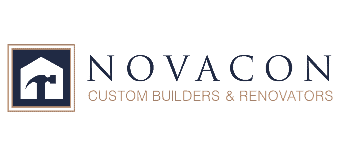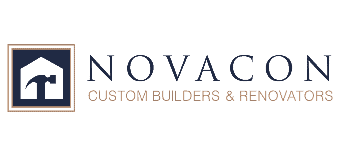Home Extension Builders in Toronto: How to Choose the Right Contractor
The right contractor can make the difference between a dream home extension and a costly nightmare.
Choosing a qualified, experienced contractor involves evaluating their reputation, track record, communication skills, and ability to navigate Toronto’s unique building requirements. The best contractors combine technical expertise with strong project management skills and transparent communication throughout the often complex process of home extensions.
Toronto’s competitive construction market offers many options, but not all contractors are equipped to handle the challenges of home extensions in the Greater Toronto Area. From navigating municipal permits and building codes to managing construction through Toronto’s harsh winters, extension projects require specialized knowledge and experience that goes beyond general construction skills.
The stakes are particularly high with home extensions because you’re living in or near the construction site throughout the project. This proximity means that communication, cleanliness, and project management become as important as construction quality. Finding a contractor who excels in all these areas while delivering exceptional craftsmanship requires careful evaluation and due diligence.
Essential Qualifications and Credentials
Licensing and Insurance Requirements
Any contractor working on home extensions in Toronto must hold proper licensing and insurance coverage to protect both themselves and homeowners. In Ontario, contractors performing work over $500 must be registered with the Ministry of Government and Consumer Services, and those working on projects over $50,000 need additional licensing requirements.
Verify that your potential contractor carries comprehensive general liability insurance and Workers’ Compensation Board (WSIB) coverage. These protections are crucial during extension projects where existing home structures and contents face potential damage risks. Request current certificates of insurance and verify coverage amounts are adequate for your project scope.
Professional affiliations with organizations like the Canadian Home Builders’ Association or Better Business Bureau indicate commitment to industry standards and ongoing education. These memberships often require background checks and adherence to codes of conduct that provide additional consumer protection.
Local Building Code Expertise
Toronto’s building codes present unique challenges that require specialized knowledge and experience. The city’s heritage districts, zoning variations, and specific requirements for different neighborhoods mean that contractors must understand not just provincial building codes but also municipal bylaws and permit processes.
Experienced extension contractors should demonstrate familiarity with Toronto’s Committee of Adjustment process for minor variances, understanding of setback requirements in different zoning areas, and knowledge of heritage preservation requirements that might affect extension design and construction methods.
The complexity of Toronto’s permit process can significantly impact project timelines and costs. Contractors with established relationships with city departments and thorough understanding of submission requirements can navigate these processes more efficiently, saving time and reducing frustration throughout the project.
Climate-Specific Experience
Toronto’s extreme weather conditions require contractors who understand how to build extensions that integrate seamlessly with existing homes while withstanding harsh winters and variable seasonal conditions. This includes knowledge of proper insulation techniques, vapor barrier installation, and heating system integration that maintains comfort throughout the home.
Understanding of local soil conditions, drainage requirements, and foundation techniques suited to Toronto’s clay soils and freeze-thaw cycles is essential for extensions that remain stable and dry over time. Contractors should demonstrate experience with waterproofing techniques and drainage solutions specific to Toronto’s climate challenges.
Experience with Toronto’s short construction season also matters significantly. Contractors must understand how to schedule work to maximize productivity during favorable weather while planning interior work for winter months when exterior construction becomes challenging.
Evaluating Reputation and Track Record
Researching Company History and Stability
A contractor’s longevity in Toronto’s market often indicates their ability to deliver quality work and maintain satisfied customers over time. Companies that have successfully operated through economic cycles, regulatory changes, and industry evolution demonstrate stability and adaptability that benefits their clients.
Research the company’s history through online reviews, Better Business Bureau ratings, and local business directories. Look for patterns in customer feedback, particularly regarding project management, communication, and problem resolution. Pay attention to how the contractor responds to negative reviews, as this indicates their approach to customer service and accountability.
Financial stability is crucial for extension projects that often span several months. Contractors who have weathered economic downturns and maintained operations demonstrate the financial management skills necessary to complete projects without interruption or quality compromises due to cash flow issues.
Reference Verification and Site Visits
Request references from recent projects similar in scope to your planned extension. Quality contractors should readily provide multiple references and encourage direct communication with previous clients. When contacting references, ask specific questions about project timeline adherence, budget management, communication quality, and overall satisfaction with the finished work.
Arrange to visit completed projects if possible, as seeing finished extensions firsthand provides insights into craftsmanship quality, attention to detail, and how well the addition integrates with the original home. This also allows you to observe how the work has held up over time and whether any issues have developed since completion.
Ask references about the contractor’s problem-solving abilities and how they handled unexpected challenges that arose during construction. Extension projects often reveal surprises like outdated wiring, plumbing issues, or structural concerns that require creative solutions and additional work.
Portfolio Review and Quality Assessment
A comprehensive project portfolio showcasing various extension types, architectural styles, and project scales demonstrates the contractor’s versatility and skill level. Look for projects that required similar challenges to your planned extension, such as matching existing architectural details, working with limited space, or integrating with heritage home features.
Pay attention to finish quality, material selection, and design integration in portfolio examples. Quality contractors take pride in their work and maintain detailed photo documentation that showcases both construction processes and finished results. This documentation also indicates their attention to project management and quality control throughout construction.
Review portfolio projects for evidence of custom home builder capabilities, particularly if your extension involves complex design elements or high-end finishes. The ability to execute custom work requires different skills than standard construction and often indicates higher overall quality standards.
Communication and Project Management Skills
Initial Consultation and Proposal Process
The initial consultation process reveals much about a contractor’s professionalism, communication skills, and understanding of your project requirements. Quality contractors take time to understand your goals, assess site conditions thoroughly, and ask detailed questions about your preferences, timeline, and budget expectations.
Professional contractors provide detailed written proposals that clearly outline scope of work, materials specifications, timeline, and payment schedules. Vague or verbal proposals indicate poor project management skills and create opportunities for misunderstandings and disputes later in the project.
The proposal process should include discussion of potential challenges, permit requirements, and how changes or unexpected issues will be handled. Contractors who address these topics upfront demonstrate experience and transparency that reduces stress and surprises during construction.
Communication Style and Responsiveness
Extension projects require ongoing communication throughout the construction process, making the contractor’s communication style and responsiveness crucial factors in project success. Evaluate how quickly they respond to initial inquiries, how clearly they explain technical concepts, and whether they listen carefully to your concerns and preferences.
Establish communication preferences and schedules during the selection process. Quality contractors should be willing to provide regular progress updates, schedule periodic meetings, and be accessible for questions or concerns that arise during construction. Their willingness to accommodate your communication needs indicates respect for your involvement in the project.
Consider the contractor’s use of technology for project communication and documentation. Modern contractors often use project management software, photo documentation, and digital communication tools that keep clients informed and provide transparency throughout the construction process.
Problem-Solving and Flexibility
Extension projects inevitably encounter unexpected challenges, from structural discoveries to permit delays or weather-related issues. The contractor’s approach to problem-solving and their flexibility in adapting to changing circumstances significantly impacts project success and client satisfaction.
Discuss hypothetical scenarios during the selection process to understand how the contractor approaches problem-solving. Quality contractors should demonstrate systematic thinking, collaboration with clients in developing solutions, and transparent communication about impact on timeline and budget.
Flexibility in accommodating client preferences and changes during construction is important, but should be balanced with clear policies about change orders, additional costs, and timeline impacts. Contractors who are too rigid or too accommodating both present potential problems for successful project completion.
Financial Considerations and Contract Terms
Pricing Structure and Payment Terms
Transparent pricing and reasonable payment terms protect both parties and indicate professional business practices. Be wary of contractors requiring large upfront payments or those whose pricing seems significantly higher or lower than other qualified bidders without clear justification.
Payment schedules should align with project milestones and completed work rather than calendar dates. This approach ensures that payments reflect actual progress and provides leverage for quality control throughout the project. Typical payment structures involve smaller initial payments with larger amounts tied to substantial completion milestones.
Understand what’s included in the base price and what constitutes additional charges. Quality contractors provide detailed breakdowns that allow you to understand where your money is going and make informed decisions about upgrades or changes during construction.
Contract Protection and Warranties
Comprehensive contracts protect both parties by clearly defining responsibilities, timelines, quality standards, and procedures for handling changes or disputes. Review contracts carefully and don’t hesitate to request clarifications or modifications before signing.
Warranty coverage should include both materials and workmanship, with clear timeframes and procedures for addressing issues that arise after completion. Quality contractors stand behind their work and provide warranties that demonstrate confidence in their craftsmanship and materials selection.
Consider dispute resolution procedures included in the contract. Clear processes for handling disagreements or changes help prevent small issues from becoming major conflicts that delay completion or damage working relationships.
Permit and Regulatory Compliance
Verify that the contractor will handle all necessary permits and inspections required for your extension project. This includes building permits, electrical permits, and any special approvals required for heritage properties or zoning variances in Toronto.
Understand who bears responsibility for permit costs, inspection scheduling, and any modifications required to achieve approval. Experienced contractors factor these requirements into their timeline and budget estimates, preventing surprises that can delay project completion.
Confirm that the contractor maintains proper licensing for all trades involved in your project. Electrical, plumbing, and HVAC work require specialized licensing, and using unlicensed contractors can create safety issues and complications with inspections and insurance coverage.
Making Your Final Decision
Comparing Proposals and Value
When comparing proposals from multiple contractors, focus on value rather than just price. The lowest bid often reflects shortcuts in materials, labor, or project management that result in higher long-term costs through delays, quality issues, or additional expenses.
Evaluate proposals based on completeness, clarity, and alignment with your project goals. Proposals that include detailed material specifications, clear timelines, and comprehensive scope descriptions indicate thorough planning and professional project management.
Consider the total project experience beyond just construction quality. Contractors who provide superior communication, project management, and customer service often deliver better value even if their initial pricing is higher than alternatives.
Trust and Comfort Level
Extension projects involve living with construction for extended periods, making your comfort level with the contractor and their team crucial for project success. Trust your instincts about personality fit, communication style, and whether you feel confident in their abilities and integrity.
Consider how the contractor’s team interacts with you during the selection process. Extension work requires coordination with multiple trades and suppliers, so the contractor’s ability to manage relationships and maintain positive working environments affects your daily experience during construction.
The contractor you choose will be making decisions that affect your home’s value, functionality, and your family’s comfort for years to come. Selecting based on the combination of technical competence, professional integrity, and personal compatibility provides the best foundation for successful project completion.
Setting Expectations for Success
Clear expectations set at the beginning of the project prevent misunderstandings and conflicts during construction. Discuss timeline expectations, daily work schedules, site cleanup procedures, and how disruptions to your normal routine will be minimized.
Establish procedures for regular progress reviews, change order approval, and quality control inspections throughout the project. These systems provide opportunities to address concerns before they become problems and ensure the finished extension meets your expectations.
Choosing the right contractor for your Toronto home extension requires balancing technical competence, professional integrity, and personal compatibility. The investment in thorough evaluation and selection pays dividends through smoother construction, higher quality results, and greater satisfaction with your completed extension.
Ready to find the right contractor for your Toronto home extension project? Novacon Construction is an award-winning design-build contractor with extensive experience in Greater Toronto Area home extensions. Our proven track record, comprehensive approach to project management, and commitment to exceptional communication ensure your extension project will be completed to the highest standards while minimizing stress and disruption to your daily life.
- When to Start Planning Your Home Addition in Toronto - December 3, 2025
- How Many Dwellings Can I Build On a Single Lot in Ontario? - October 29, 2025
- Home Renovation and Additions in Toronto: Combining Upgrades for Maximum Impact - October 29, 2025






